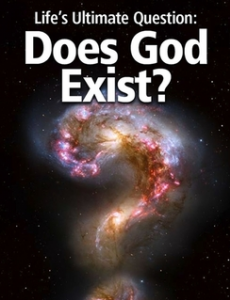
I must emphasise that I stand neutrally and that this article considers whether one can argue for the existence of a God or not. Every individual is perfectly entitled to their own opinions, we are simply practising debating in a philosophical manner.
Psalm 14 states that “Only the fool says in his heart there is no God.” Anselm and later Descartes provided multiple arguments to support the statement that it is foolish to say God does not exist. Although Gaunilo and Kant can be argued to have successfully countered the Ontological argument, it has survived through modern day philosophers such as Norman Malcolm and Alvin Plantinga and is a popular course in Universities, taught by such lecturers as William Layne Craig. All of Anselm, Descartes, Malcolm and Plantinga’s arguments are ‘reductio ad absurdum’ (can be reduced to absurdity).
Malcolm (1911-1990) provided an ‘a priori’ argument which also dealt with the key word - existence. He argued that if God is that than which nothing greater can be conceived, he cannot be brought into existence; nor can he just randomly come into existence because this would require the existence of a greater being and God is the greatest possible being. Therefore, God’s existence is either necessary or impossible; he either has to exist or does not. Malcolm concluded that unless God’s necessary existence presents us with a logical contradiction, we must accept it. Furthermore, Plantinga (1932-present day) spoke about ‘possible worlds’. He suggested that there is a possible world in which there is a being with ‘Maximal Greatness’. A being only has ‘Maximal Greatness’ if it exists in every world. Therefore, such a being exists in our world. This however, does not mean God. He then identified a problem; even if the being exists in every world, there could exist, in each separate world, an individual being that is greater. Therefore, Plantinga suggests ‘Maximal Excellence’ which when combined with ‘Maximal Greatness’ to the being, we can conclude that there is a God whose existence follows from his essence. Combining the theories of Anselm, Descartes, Malcolm and Plantinga it seems foolish to say that God does not exist.
However, as I have previously explained, Gaunilo and Kant heavily criticised and embarrassed Anselm and Descartes’ adaptations of the Ontological Argument. Though Malcolm and Plantinga have since remodelled the argument, there are also criticisms for their theories. Malcolm argues that stating that God possesses necessary existence means that one can conclude logically and acceptably that God must exist. Davies challenges this; he believes that Malcolm has failed to recognise that the word ‘is’ can be used in different ways. In this way Davies’ criticism is similar to that of Immanuel Kant’s – that the Ontological Argument is based on ‘bad grammar’. Davies argued that ‘is’ can be used to describe something or to explain that there actually is something and the latter tells us nothing but leave us having to suppose the existence of something. He said this is unacceptable as you could use this to define anything into existence and so defining God’s existence as such is false and thus disagrees with the statement. A critique of Plantinga is that he claims there is a being with ‘maximal excellence’ in every world and this means such a being must exist in our world. However this is not the case and so maximal excellence is possible not actual and so therefore is God.
In light of the arguments expressed above, though there are multiple arguments for the existence of God to support Psalms 14 verse 1 that “Only the fool does not have God in his heart”, every single one of these arguments is specifically and accurately criticised. Furthermore, the impact of religion on life and society is declining in the 21st Century as numbers of true Christians begin to dwindle in face of scientific advancements and the constant underlying question; how can a God, a perfect being, allow so much pain and suffering in the world? Therefore, I conclude that it is not foolish to say God doesn’t exist but rather is sensible to place your resources and energy into what is physically available to us on this world, not chase concepts of possible worlds as Plantinga would have us do. Ultimately, God can neither be proven or disproven at this point in history but, turning the statement on its head, it seems almost foolish to believe in a God when we can only speculate as to his/her existence/personality/traits. - This is one possible conclusion from the arguments expressed, what is your conclusion? It is good to disagree and contest concepts because this will be an important skill in the future. This article does not represent the viewpoint of anyone at King's News but rather is an argument constructed with the intention of teaching and encouraging feedback. We hope to hear from you!
IMAGE: http://static.lulu.com/browse/product_thumbnail.php?productId=13206976&resolution=320

0 Comment:
Be the first one to comment on this article.